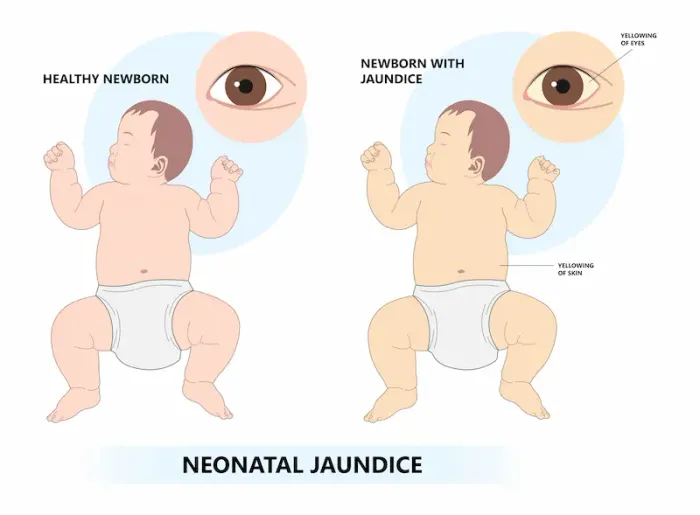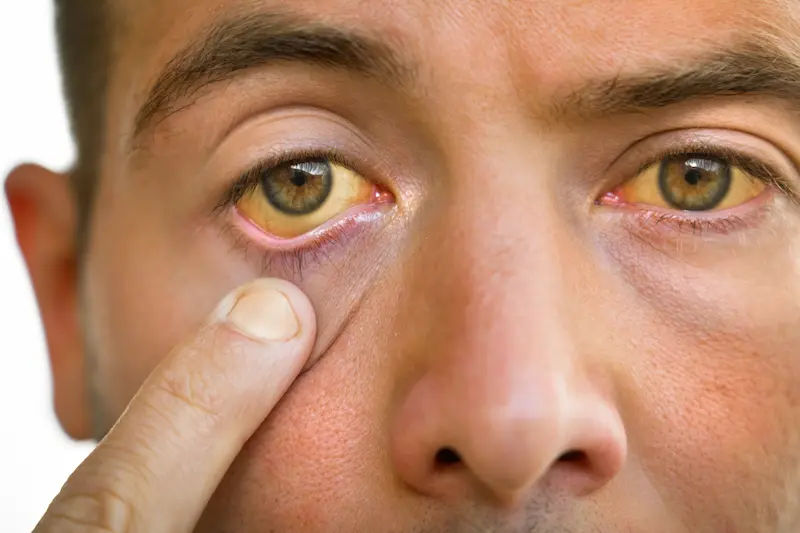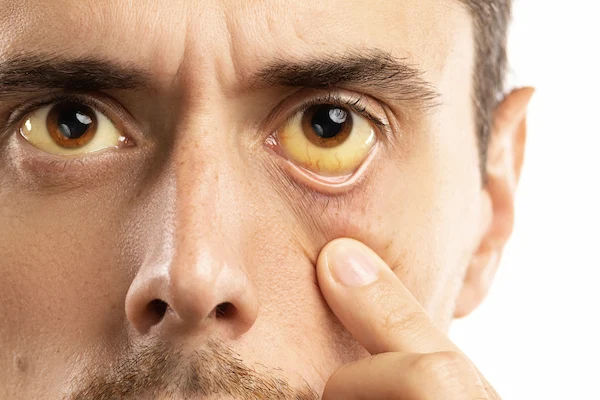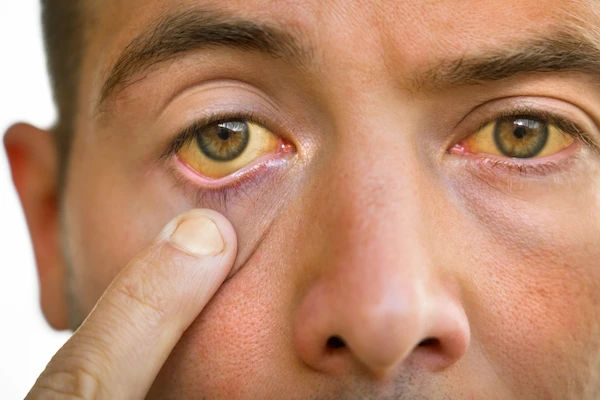Understanding Neonatal Jaundice Causes and Treatment
Know about neonatal jaundice, what it is, types, causes, symptoms, diagnosis and treatment options. Learn about the parent tips to handle the treatment.

Written by Dr. J T Hema Pratima
Reviewed by Dr. Dhankecha Mayank Dineshbhai MBBS
Last updated on 13th Jan, 2026

Introduction
Welcoming a newborn into the world is a joyous occasion, but it can also bring concerns, especially if your baby develops neonatal jaundice. This common condition causes a yellow tint in a baby’s skin and eyes, which can be worrying for new parents. Neonatal jaundice is usually harmless and treatable. In this article, we’ll explain what causes it, how to recognise it, and the best ways to manage it.
What is Neonatal Jaundice?
Neonatal jaundice is a condition where a newborn’s skin and eyes appear yellow due to high levels of bilirubin, a yellow pigment produced when red blood cells break down. Since a baby’s liver is still developing, it may not process bilirubin efficiently, resulting in its accumulation in the blood.
Types of Neonatal Jaundice
It includes:
1. Physiological Jaundice – The most common type, appearing 2–4 days after birth and resolving within 1–2 weeks.
2. Pathological Jaundice – Occurs within the first 24 hours and may indicate an underlying health issue.
3. Breast Milk Jaundice – Develops after the first week due to substances in breast milk that slow bilirubin removal.
What Causes Neonatal Jaundice?
Several factors can contribute to neonatal jaundice:
• Immature Liver – A newborn’s liver isn’t fully developed, making it harder to filter bilirubin.
• Increased Red Blood Cell Breakdown – Newborns have more red blood cells than adults, leading to higher bilirubin production.
• Blood Type Incompatibility – If the mother and baby have different blood types (e.g., Rh or ABO incompatibility), the baby’s red blood cells may break down faster.
• Premature Birth – Preterm babies have underdeveloped livers, increasing jaundice risk.
• Breastfeeding Challenges – Poor feeding can reduce bowel movements, which in turn can slow bilirubin excretion.
Symptoms to Watch For
The most noticeable sign is a yellow tint in the skin and whites of the eyes, starting from the face and spreading downward. Other signs include:
• Poor feeding or lethargy
• Dark yellow urine (newborn urine should be colourless)
• Pale-colored stools (instead of yellow or green)
Severe jaundice can lead to complications like kernicterus (brain damage due to high bilirubin levels), so early detection is crucial.
How is Neonatal Jaundice Diagnosed?
Doctors diagnose jaundice through:
• Physical Examination – Checking skin and eye colour.
• Bilirubin Blood Test – Measures bilirubin levels in the blood.
• Transcutaneous Bilirubinometer – A painless device that estimates bilirubin levels through the skin.
If you notice yellowing in your baby, consult a paediatrician immediately. You can also book a consultation or schedule a bilirubin test through Apollo 24|7 for quick and reliable results.
Treatment Options
Most cases of jaundice resolve on their own, but some babies need treatment:
1. Phototherapy (Light Therapy)
• The baby is placed under special blue lights that help break down bilirubin.
• Eyes are covered to protect them from the light.
2. Increased Feeding
• Frequent breastfeeding or formula helps flush out bilirubin through the stools.
• Ensure your baby feeds at least 8–12 times a day.
3. Intravenous Immunoglobulin (IVIg)
• Used in cases of blood type incompatibility to reduce antibody levels.
4. Exchange Transfusion (Rare Cases)
• If bilirubin levels are dangerously high, a blood transfusion may be needed.
Tips for Parents
Tips for parents include:
• Monitor Your Baby’s Colour – Check in natural daylight for yellowing.
• Ensure Proper Feeding – Breastfeed often to help bilirubin excretion.
• Follow Doctor’s Advice – Attend follow-up visits for bilirubin checks.
• Avoid Home Remedies – Sunlight exposure isn’t a safe alternative to phototherapy.
When to Seek Emergency Care?
Contact a doctor immediately if your baby:
• Becomes extremely sleepy or difficult to wake
• Has a high-pitched cry
• Develops fever or arching of the back
Final Thoughts
Neonatal jaundice is common and usually harmless, but early detection and treatment are key. With proper care, most babies recover quickly. If you’re concerned about your newborn’s health, don’t hesitate to consult a paediatrician or book a test through Apollo 24|7 for expert guidance.

 (1).jpg)


